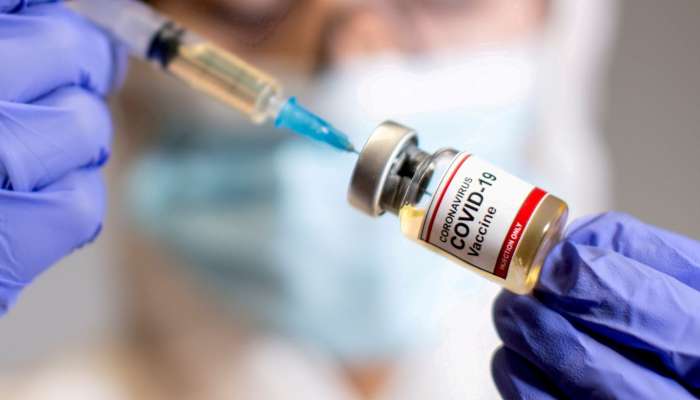

Muscat: Incidence of heart attacks among people who have received COVID-19 vaccines has not risen, the Oman Heart Association (OHA) has said.
While several studies have shown that there are some side-effects associated with all COVID vaccines, including pain and slight swelling at the injection site, Dr Adil Barakat Al Riyami, a senior consultant interventional cardiologist, said there has been no reliable study confirming a rise in heart attacks post-vaccinations, either in Oman or across the globe.
“However, what has been clearly documented across the world, and, in Oman as well, is the occurrence of post-vaccination myocarditis,” he said.
“This myocarditis is usually limited, and does not cause long-term problems. Myocarditis causes the secretion of the heart muscle enzyme, known as troponin, which is the same enzyme secreted in patients with heart attacks…hence the confusion.”
In support of his statements, Al Riyami pointed out that in one of the largest studies conducted in this context, 54 occurrences of myocarditis were recorded among more than 2.5 million people who had been administered with the COVID vaccine: That’s about 2.13 incidents of myocarditis for every 100,000 people.
“This is the same rate of myocarditis that occurs even if people do not receive their vaccines,” he added. “76 percent of incidents were mild, 22 percent were moderate, and only one was classified as critical.”
Al Riyami also questioned people who had taken to the OHA’s official social media accounts to ask about reportedly high numbers of recent cardiac arrest-related deaths in Oman. “We have not noticed an increase in the number of heart attacks in people after they were vaccinated,” he said.
The OHA also issued advisories for people in this regard, stating: “In a recently published study, it was proven that the influenza vaccine, when issued to heart patients, reduced the death rate by 41 percent and the occurrence of another stroke by 14 percent, within a year of follow-up since the vaccine was first administered.
“Among the symptoms of myocarditis are signs of a viral infection, body aches, joint pain, fever, headaches, vomiting, diarrhoea, sore throat, heart palpitations, chest pain, and shortness of breath while at rest and during physical activity. Always make sure to get the right information from specialists, and follow the association’s account for developments and news related to heart health,” added the OHA.
In this context, Dr Zaid Al Hinai, assistant professor of paediatric infectious diseases at the College of Medicine and Health Sciences at Sultan Qaboos University, pointed out that an increase in cardiovascular problems has been detected in a small proportion of people in Oman who have recovered from COVID-19.
Lately, we have seen that across society, and by doctors in the field as well, that the rates of stroke and heart disease have increased over the last few months,” he said. “These occurrences do raise questions regarding why such issues are being seen more frequently these days.”
“In this regard, the scientific data we have, unfortunately points to an increase in cardiovascular complications following large waves of COVID-19 infections,” he added. “However, the good news is that most people who have recovered from COVID-19 will not experience these complications, and that the vaccines continue to provide a good level of protection from these issues.”
Al Hinai pointed to a number of studies conducted by other universities that attempted to map the correlation between heart complications and infection from COVID-19.
Among the strongest studies in this matter was the one published in ‘Nature Medicine’ in February this year. In this study, researchers from the University of St. Louis in the US looked at the health outcomes of more than 150,000 patients who recovered from COVID-19, monitoring their health for up to a year after they recovered.
“They found that despite these people having recovered, there was still an increase in the risk of heart disease and strokes,” explained Al Hinai. “They found that about 45 out of every 1,000 persons who recovered from COVID suffered at some point after recovery from cardiovascular or thrombotic complications, which is a significant increase from normal levels.”
The authors of the study concluded that health systems need to be prepared to care for more cardiovascular diseases after waves of COVID-19 infection. They also emphasised the importance of early detection of heart disease among people who have recovered from COVID-19.
While some might be quick to point out that heart complications are the side effects of COVID vaccines, Zaid Al Hinai was quick to refute this allegation.
“Again, the question that arises here is the role of vaccines in this issue,” he said: “While some have tried to blame these complications on the vaccines, the truth is that the scientific data shows that the vaccines have actually protected against these heart problems.”
Al Hinai also referred to a study from Case Western Reserve University to corroborate the findings of increased heart problems in people who have recovered from COVID-19. The study looked at 25,000 patients who were vaccinated, but had become infected with the diseases, and then recovered.
They found that these patients, three months after their infection, had a much lower rate of heart disease and a much lower rate of death compared to patients who were not vaccinated and had gotten infected with COVID-19. This study, and others, have found that vaccination has not only reduced the acute complications of COVID-19, but also reduced its long term complications.
“So in summary, the scientific data we have unfortunately points to an increase in cardiovascular complications following large waves of COVID-19 infections,” explained Al Hinai. “However, the good news is that most people who recovered from COVID-19 will not experience these complications, and that the vaccines have provided a good level of protection from these.”